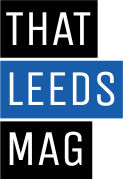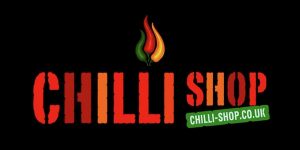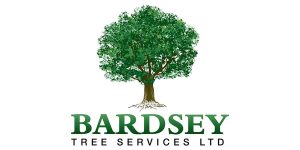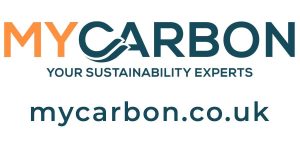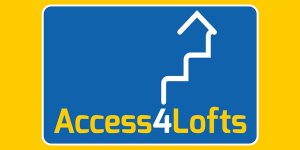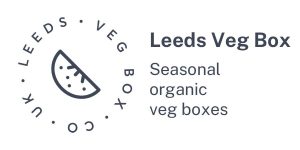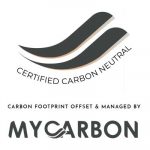It is clear from our interview that Toby Green, co-founder of MyCarbon and PhD researcher at the University of Leeds, is incredibly passionate about the environment. In our chat we discuss how to calculate my carbon usage, what our highest carbon use activity as humans is and why striving to be carbon neutral is so important.
If you don’t have time to watch the video, here is an abridged version of our conversation from 13th November as printed in the December 2020 THAT LEEDS MAG.
Deby: So what is your connection to Leeds, the greatest city in the world?
Toby: It really is, isn’t it? In the UK there’s nowhere else I’d like to live. Leeds all the way. Leeds offered a PhD in bioenergy. And that’s something I really, really was interested in. I’d never been to Leeds before, I’m absolutely loving it here.
Deby: So, who are MyCarbon?
Toby: MyCarbon is myself and the other co-founder, Michael Greenhoff. We did our undergraduate degrees together, in Loughborough. When I started my PhD in bioenergy I became increasingly aware of how our individual behaviours can impact the environment. I struggled to balance life’s everyday activities with the need to live in a sustainable way. And that’s where MyCarbon came from. Lots of people really care about the environment, but struggle to incorporate it into their everyday lives. MyCarbon is the easiest way for you to take responsibility for your own carbon footprint and lead a carbon neutral lifestyle.
Deby: Carbon Neutral is a phrase that gets used a lot, but what does it actually mean?
Toby: Essentially, if you’re going around and you’re driving, you’re polluting and through your diet, your activities. That’s all giving you emissions. Over the course of the year, in the UK, your average emissions is 12 tonnes of CO2 per year. 1 tonne is equivalent to 40,000 full balloons. So times that by 12. Carbon neutral is about bringing all them balloons back down to zero. The only official way to do this is through carbon credits, through the purchase and retirement of a carbon credit. One carbon credit is equal to the removal, or the prevention of one tonne of CO2 entering the atmosphere. There are carbon projects that create the carbon credits. And that could be a forestry project. It could be a renewable energy project. It could be carbon capture. Or it could be something more energy efficiency. You have to purchase and retire them to offset your carbon footprint.
Deby: What is the highest carbon activity that we do as individuals?
Toby: There’s two that I debate. It’s either flying or your diet. If you take 2 economy flights, for example London to New York, that’s 2 tonnes of CO2, that you’re responsible for, 1 each way. That’s loads and loads more CO2 balloons. Some people like to go economy plus, business class or first class. And because of the amount of extra space you’re using on the plane, the emission factor, that is used to calculate your carbon footprint from your journey gets then doubled and then quadrupled. So if you’re first class, London to New York, you’re looking at about four tonnes of CO2. For a one way journey, one way, so eight tonnes for first class return journey. If you are thinking of holidaying in Europe, there are lots of ways of getting there without flying. I really recommend the Eurostar, it makes a much nicer journey.
Talking about diets, meat processing has a particularly high CO2 usage. If you if you’re someone who eats a lot of meat, and all of the meats, we’re talking beef, lamb, pork, chicken, fish, all of that your yearly emissions would be about 3.5 tonnes just from your diet alone. Now if you remove the beef and lamb, they’re the biggest sources of emissions, you can halve that amount. So if you’re sticking to your chicken, pork, fish, and then your veggies that can cut right down to 1.7 tonnes. Vegetarians you’re about a 1.2 per year. Vegan about 0.5-0.7 tonnes per year. Being vegan it’s quite hard to do, especially if you are a big meat eater. So, maybe try and reduce it a little bit. If you’re someone who loves meat, meat is life there’s nothing wrong with that we’re human beings. We eat meat. Buy high quality beef from your local butcher, you know that it’s been grown in the countryside where it’s not causing deforestation. A huge amount of beef emissions is that huge chunks of rainforest in Thailand, Indonesia, Brazil are being cleared for cattle that are being raised on a factory scale. You might find these meats in ready meals, or in takeaways. Maybe try and have one vegetarian meal a week.
Carbon is good. Carbon is life. We need it for our plants, for photosynthesis. We need it in our soil.
Calculate your carbon footprint at MyCarbon.co.uk.
It takes about 3 minutes. Free, simple to use. No signup.
Leeds council talk about the climate emergency
Episode Eleven – The Role of Climate Change in our Recovery.
November 15, 2020
In this episode Eve Roodhouse (Chief Officer of Economic Development at Leeds City Council) is joined by Polly Cook (Chief Officer Sustainable Energy & AQ- at Leeds City Council) and Gordon Rogers
(Head of Sustainability- Yorkshire Water) to discuss the impacts of climate change across Leeds. They discuss the importance of the Climate emergency declaration back in 2019 and what changes and projects have happened since then across housing, travel and biodiversity. They also reflect on how the pandemic has impacted our climate for the positive, and what ways that has led to changes in how we travel and communicate. If listeners have any thoughts on what was discussed in this episode or if they want to join the conversation they can tweet us @LeedsIGS
